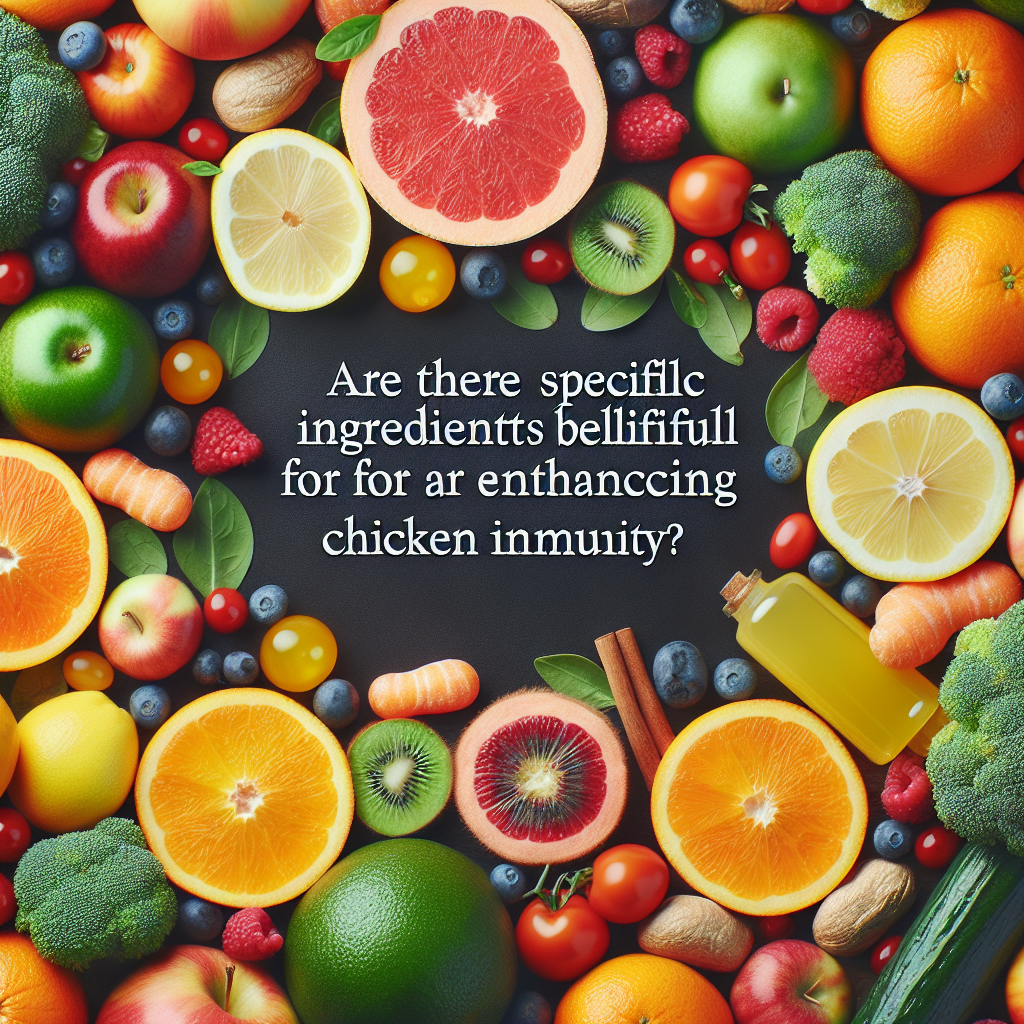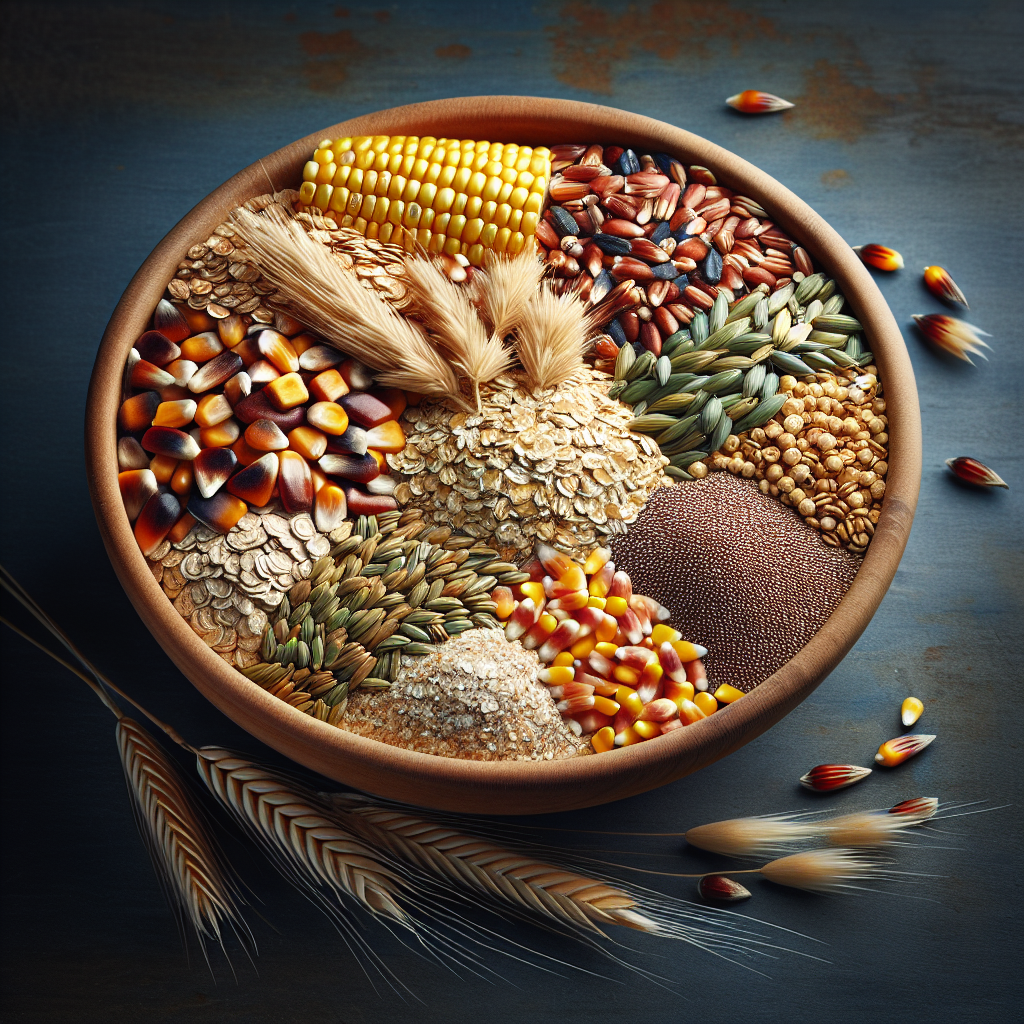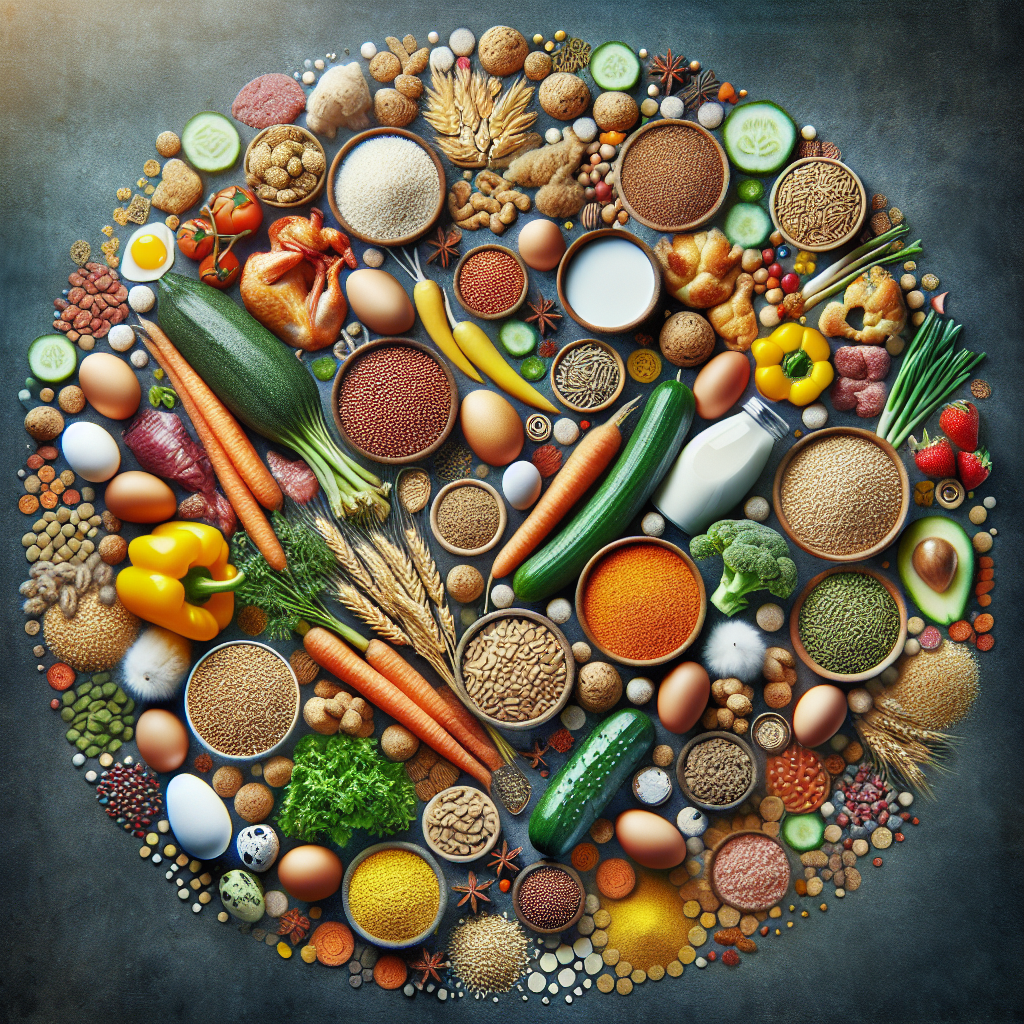Boosting the immune system of chickens is crucial for maintaining their health and productivity. In the quest to enhance chicken immunity, researchers have been studying the role of specific ingredients. This article explores the potential benefits of these ingredients and their impact on enhancing the immune system of our beloved feathered friends. From natural extracts to essential oils, discover the power of these ingredients in supporting chicken health and well-being.
Benefits of Enhancing Chicken Immunity
Improved Health and Well-being
Enhancing chicken immunity can greatly contribute to improved health and overall well-being of the birds. A strong immune system helps them fight off diseases and infections more effectively, leading to a decreased risk of illness and mortality. When chickens are healthy, they exhibit better growth, have higher energy levels, and experience less stress. They are also more able to withstand environmental challenges, such as fluctuations in temperature or exposure to pathogens.
Reduced Risk of Disease
One of the major benefits of enhancing chicken immunity is a reduced risk of disease. Chickens with a robust immune system are better equipped to fend off harmful bacteria, viruses, and parasites. By bolstering their immunity, you can help minimize the occurrence and severity of common poultry diseases such as respiratory infections, coccidiosis, and salmonellosis. This not only improves the overall welfare of the chickens but also helps to safeguard the health of your entire flock.
Enhanced Growth and Productivity
A strong immune system directly impacts the growth and productivity of chickens. When chickens are healthy and their immune system is functioning optimally, they are better able to utilize the nutrients from their feed and convert them into muscle mass, leading to faster growth and improved productivity. Additionally, a boosted immune system helps to prevent and resolve issues such as enteritis or diarrhea, which can negatively affect weight gain and feed efficiency. By enhancing chicken immunity, you can maximize the potential for growth and productivity in your poultry operation.
Essential Nutrients for Boosting Chicken Immunity
Vitamins
Vitamins play a crucial role in strengthening the immune system of chickens. They act as antioxidants, neutralizing harmful free radicals and protecting cells from damage. Vitamin A, C, E, D, and various B-complex vitamins are particularly important for enhancing chicken immunity. These vitamins are involved in the production and activation of immune cells, as well as supporting the overall functioning of the immune system.
Minerals
Minerals are essential for maintaining strong immune function in chickens. Zinc, selenium, copper, iron, and manganese are among the key minerals that contribute to boosting chicken immunity. These minerals are involved in various aspects of immune response, such as antibody production, enzyme activity, and antioxidant defense. Ensuring adequate mineral supplementation is vital for maintaining optimal immune health in chickens.
Amino Acids
Amino acids are the building blocks of proteins and are critical for the development and functioning of the immune system in chickens. Lysine, methionine, threonine, tryptophan, and glutamine are amino acids that are particularly important for enhancing chicken immunity. These amino acids are involved in the synthesis of immune cells, antibody production, and the modulation of immune responses. Including amino acid-rich feed ingredients in the diet can support optimal immune function in chickens.
Vitamins for Chicken Immunity
Vitamin A
Vitamin A is essential for promoting a healthy immune system in chickens. It plays a vital role in the development and differentiation of immune cells, as well as maintaining the integrity of various tissues, including the respiratory and digestive tracts. Additionally, vitamin A acts as an antioxidant, protecting cells from oxidative stress. Ensuring an adequate supply of vitamin A in the diet helps enhance chicken immunity and reduce the risk of infections.
Vitamin C
Vitamin C is known for its immune-boosting properties in both humans and animals, and chickens are no exception. This vitamin supports the production and function of immune cells, enhances antibody response, and acts as an antioxidant. Vitamin C can help alleviate stress and enhance the immune response in chickens, especially during periods of environmental or pathogenic challenges.
Vitamin E
Vitamin E is a powerful antioxidant that protects immune cells from damage and strengthens the immune response in chickens. It plays a crucial role in maintaining the integrity of cell membranes and modulating the production of certain immune proteins. Including sufficient vitamin E in the diet can enhance chicken immunity by improving their ability to resist pathogens and maintain overall health.
Vitamin D
Vitamin D is essential for optimal immune function and overall health in chickens. It supports the development and activation of immune cells, contributes to the regulation of immune responses, and helps maintain the balance between inflammatory and anti-inflammatory processes. Adequate exposure to sunlight or the provision of sufficient vitamin D in the diet is necessary to enhance chicken immunity.
B-Complex Vitamins
B-complex vitamins, including niacin, riboflavin, thiamine, pyridoxine, and cobalamin, are vital for the proper functioning of the immune system in chickens. These vitamins play key roles in energy metabolism, DNA synthesis, and the production of immune cells and antibodies. Including a balanced combination of B-complex vitamins in the diet is crucial for supporting optimal immune health in chickens.
Minerals for Chicken Immunity
Zinc
Zinc is an essential mineral for enhancing chicken immunity. It is involved in the development and function of immune cells, the production of antibodies, and the control of inflammation. Zinc supplementation can improve immune responses and contribute to better overall health in chickens. Ensuring an adequate intake of zinc through the diet is important for boosting chicken immunity.
Selenium
Selenium is a trace mineral that plays a critical role in supporting optimal immune function in chickens. It acts as an antioxidant, protects immune cells from oxidative damage, and enhances antibody production. Adequate selenium levels in the diet can improve the immune response and help protect against pathogens and diseases in chickens.
Copper
Copper is necessary for proper immune function in chickens. It is involved in the development and activation of immune cells, as well as the production of antibodies. Copper also plays a role in wound healing and overall tissue integrity. Including sufficient copper in the diet is important for enhancing chicken immunity and promoting their overall health.
Iron
Iron is essential for the production and functioning of immune cells in chickens. It is involved in various immune processes, such as the synthesis of immune proteins and the modulation of immune responses. Optimal iron levels in the diet contribute to enhanced chicken immunity and better resistance to infections.
Manganese
Manganese is a mineral that supports optimal immune function in chickens. It is important for the production and activation of immune cells, as well as the synthesis of certain immune proteins. Adequate manganese levels in the diet help maintain a robust immune system and aid in disease prevention in chickens.
Amino Acids for Chicken Immunity
Lysine
Lysine is an essential amino acid that plays a crucial role in enhancing chicken immunity. It is involved in the production of antibodies and immune cells, as well as the synthesis of vital immune proteins. Lysine supplementation can support optimal immune responses and improve the overall health and disease resistance of chickens.
Methionine
Methionine is another essential amino acid that contributes to enhanced chicken immunity. It is necessary for the synthesis of immune cells, antibodies, and enzymes involved in immune responses. Methionine plays a critical role in regulating the immune system and maintaining its proper functioning.
Threonine
Threonine is an amino acid that is important for supporting optimal immune function in chickens. It is involved in the production of immune cells and the synthesis of immune proteins. Threonine also plays a role in maintaining gut health, which is closely linked to immune health in chickens.
Tryptophan
Tryptophan is an essential amino acid that is beneficial for enhancing chicken immunity. It is involved in the production of immune cells and the synthesis of immune proteins and enzymes. Tryptophan also plays a role in regulating inflammatory processes, contributing to a balanced immune response in chickens.
Glutamine
Glutamine is a conditionally essential amino acid that is critical for supporting chicken immunity. It fuels the growth and function of immune cells, promotes antibody production, and helps maintain the integrity of the gut lining. Including an adequate supply of glutamine in the diet can enhance the immune response and overall health of chickens.
Herbs and Plants with Immune-Boosting Properties
Echinacea
Echinacea is an herb known for its immune-boosting properties. It stimulates the activity of immune cells, enhances the production of antibodies, and helps reduce inflammation. Including echinacea in the diet or as a supplement can support chicken immunity and help protect against various infections.
Garlic
Garlic is a natural ingredient with potent immune-boosting properties. It contains compounds that stimulate immune cells, have antimicrobial effects, and possess antioxidant properties. Including garlic in the diet can strengthen chicken immunity and promote better overall health.
Turmeric
Turmeric has long been recognized for its immune-boosting properties. It contains curcumin, a compound known for its anti-inflammatory and antioxidant effects. Curcumin enhances immune responses, supports immune cell function, and helps reduce oxidative stress. Incorporating turmeric in the diet or as a supplement can positively impact chicken immunity.
Ginger
Ginger is another herb with immune-boosting properties that can benefit chickens. It has anti-inflammatory and antimicrobial effects, supports respiratory health, and stimulates immune responses. Including ginger in the diet can help enhance chicken immunity and protect against respiratory infections.
Oregano
Oregano is a herb with natural antimicrobial and immune-stimulating properties. It contains compounds such as thymol and carvacrol, which have been shown to support the immune system and help protect against pathogens. Including oregano in the diet or as part of a herbal supplement can aid in enhancing chicken immunity and promoting better gut health.
Probiotics and Prebiotics for Chicken Immunity
Lactobacillus
Lactobacillus is a beneficial bacteria commonly used as a probiotic for enhancing chicken immunity. It helps to maintain a healthy balance of gut microbiota, supports digestion and nutrient absorption, and enhances the immune response. Lactobacillus supplementation can contribute to a stronger immune system and improved overall health in chickens.
Bifidobacterium
Bifidobacterium is another beneficial bacteria that can be used as a probiotic for enhancing chicken immunity. It plays a role in maintaining gut health, regulating immune responses, and inhibiting the growth of harmful bacteria. Including Bifidobacterium in the diet or as a probiotic supplement can enhance the immune function of chickens.
Fructooligosaccharides
Fructooligosaccharides (FOS) are prebiotics that serve as a nutrient source for beneficial bacteria in the gut. They stimulate the growth and activity of probiotic bacteria, such as Lactobacillus and Bifidobacterium, thereby enhancing gut health and supporting immune function in chickens. Including FOS in the diet can positively impact chicken immunity.
Inulin
Inulin is another prebiotic that can be used to enhance chicken immunity. It acts as a food source for beneficial bacteria, promotes the production of short-chain fatty acids, and improves gut health. Including inulin in the diet can contribute to a stronger immune system and better overall health in chickens.
Mannan-oligosaccharides
Mannan-oligosaccharides (MOS) are prebiotics that support gut health and enhance immune responses in chickens. They help to prevent the attachment of harmful bacteria to the gut lining, stimulate the production of immune cells and antibodies, and improve the overall balance of gut microbiota. Including MOS in the diet can play a significant role in boosting chicken immunity.
Natural Supplements for Chicken Immunity
Beta-Glucans
Beta-glucans are natural compounds that have immunomodulatory properties. They stimulate the activity of immune cells, enhance antibody response, and promote an overall balanced immune system. Including beta-glucans in the diet or as a supplement can boost chicken immunity and help protect against infections.
Nucleotides
Nucleotides are essential components of DNA and RNA, and they play a role in various immune processes. They contribute to the development and function of immune cells, promote antibody production, and support immune responses. Including nucleotides in the diet can enhance chicken immunity and improve their ability to fight off pathogens.
Resveratrol
Resveratrol is a natural compound found in grapes, berries, and certain plants. It has antioxidant and anti-inflammatory properties, supports immune responses, and helps reduce oxidative stress. Including resveratrol in the diet or as a supplement can contribute to enhanced chicken immunity and overall health.
Quercetin
Quercetin is a flavonoid with immune-boosting properties. It has antioxidant, anti-inflammatory, and antiviral effects, and helps support immune responses. Including quercetin-rich ingredients in the diet can strengthen chicken immunity and provide protection against various pathogens.
Essential Oils
Certain essential oils, such as oregano oil, thyme oil, and cinnamon oil, have been shown to have immune-enhancing effects in chickens. They possess antimicrobial, antiviral, and antioxidant properties, and can support a healthy immune system. Adding essential oils to the diet or using them in the poultry environment can contribute to enhanced chicken immunity and overall well-being.
Feeding Strategies to Enhance Chicken Immunity
Balanced and Varied Diet
Providing a balanced and varied diet to chickens is crucial for enhancing their immunity. A well-formulated diet should include a mix of high-quality protein sources, grains, vitamins, minerals, and other essential nutrients. Including a variety of feed ingredients can ensure that chickens receive a broad range of beneficial nutrients, supporting optimal immune function.
Appropriate Feed Formulation
Proper feed formulation is essential for enhancing chicken immunity. Ensuring that the diet meets the specific nutrient requirements of the birds at different stages of growth and development is critical. It is important to work with a poultry nutritionist to formulate feed recipes that address the specific needs of the flock, taking into account factors such as breed, age, and production objectives.
Optimum Feeding Frequency
Feeding frequency plays a role in enhancing chicken immunity. Providing regular and frequent meals ensures a steady intake of nutrients and energy, supporting optimal immune function. Establishing a feeding schedule that meets the needs of the birds at different stages of growth can contribute to enhanced chicken immunity and overall health.
Proper Feeding Management
Proper feeding management practices are essential for maximizing chicken immunity. This includes providing access to clean and fresh water at all times, ensuring feed is properly stored and protected from contaminants, and regularly monitoring feed quality. Additionally, avoiding feed wastage and implementing appropriate feeding techniques can help optimize nutrient intake and enhance chicken immunity.
Biosecurity Measures
Biosecurity measures are crucial for preventing the introduction and spread of pathogens, ultimately enhancing chicken immunity. Implementing measures such as controlling access to the poultry facility, practicing proper sanitation and disinfection protocols, and monitoring and managing disease risks are essential. Biosecurity measures help reduce the incidence of infections and minimize stress on the birds, promoting a stronger immune system.
Considerations for Effective Immunity Enhancement
Quality of Ingredients
When selecting ingredients for enhancing chicken immunity, it is important to prioritize their quality. Using high-quality feed ingredients that are free from contaminants and properly processed ensures that the birds receive optimal levels of essential nutrients. Quality ingredients contribute to the overall effectiveness of immune enhancement strategies and help maintain the health and well-being of the flock.
Dosage and Administration
Determining the appropriate dosage and administration method for immune-boosting ingredients is critical. It is essential to follow recommended guidelines provided by experts, manufacturers, or poultry nutritionists. Overdosing or underdosing can have adverse effects and compromise the effectiveness of immunity enhancement. Proper dosage and administration ensure the chickens receive the optimal levels of essential nutrients for optimal immune function.
Compatibility and Synergy
Consider the compatibility and synergy between different immune-boosting ingredients. Some nutrients or compounds may work synergistically, enhancing each other’s effectiveness. It is important to consider the interactions between various nutrients and supplements to maximize their immune-enhancing potential. Consulting with poultry nutritionists or experts can help identify optimal combinations for boosting chicken immunity.
Health Monitoring
Regular health monitoring is essential for evaluating the effectiveness of immunity enhancement strategies. This involves closely observing the birds for signs of illness, such as changes in behavior, appetite, or appearance. Monitoring flock health allows for early detection of any issues and timely intervention to prevent disease outbreaks. Regular veterinary checks and diagnostic testing can also provide valuable insights into the overall immune health of the birds.
Consultation with Experts
Consulting with poultry nutritionists, veterinarians, or experts in the field can provide valuable guidance when designing an immunity enhancement program. These professionals can assess the specific needs of your flock, recommend appropriate dietary strategies and supplements, and provide advice on feeding management and biosecurity measures. Their expertise ensures that your efforts to enhance chicken immunity are based on sound scientific and practical knowledge.
In conclusion, enhancing chicken immunity offers numerous benefits, including improved health and well-being, reduced risk of disease, and enhanced growth and productivity. Essential nutrients such as vitamins, minerals, and amino acids play a crucial role in boosting chicken immunity. Herbs and plants with immune-boosting properties, probiotics, prebiotics, and natural supplements also contribute to enhancing chicken immunity. Feeding strategies, including a balanced and varied diet, appropriate feed formulation, optimum feeding frequency, proper feeding management, and biosecurity measures, all play a role in enhancing chicken immunity. Considerations such as the quality of ingredients, dosage and administration, compatibility and synergy, health monitoring, and consultation with experts are important for the effective enhancement of chicken immunity. By proactively supporting the immune system of chickens, you can improve their overall health, productivity, and resistance to diseases, ultimately ensuring a successful and thriving poultry operation.




